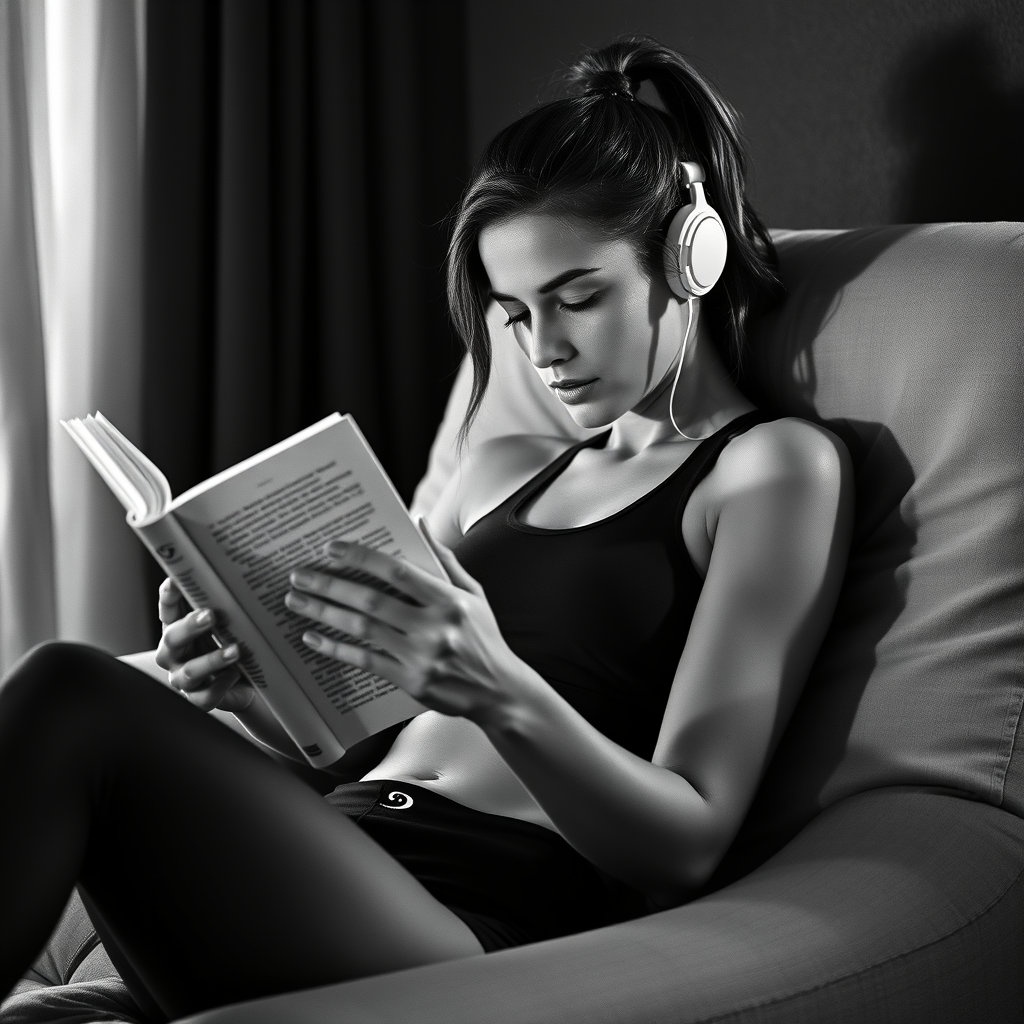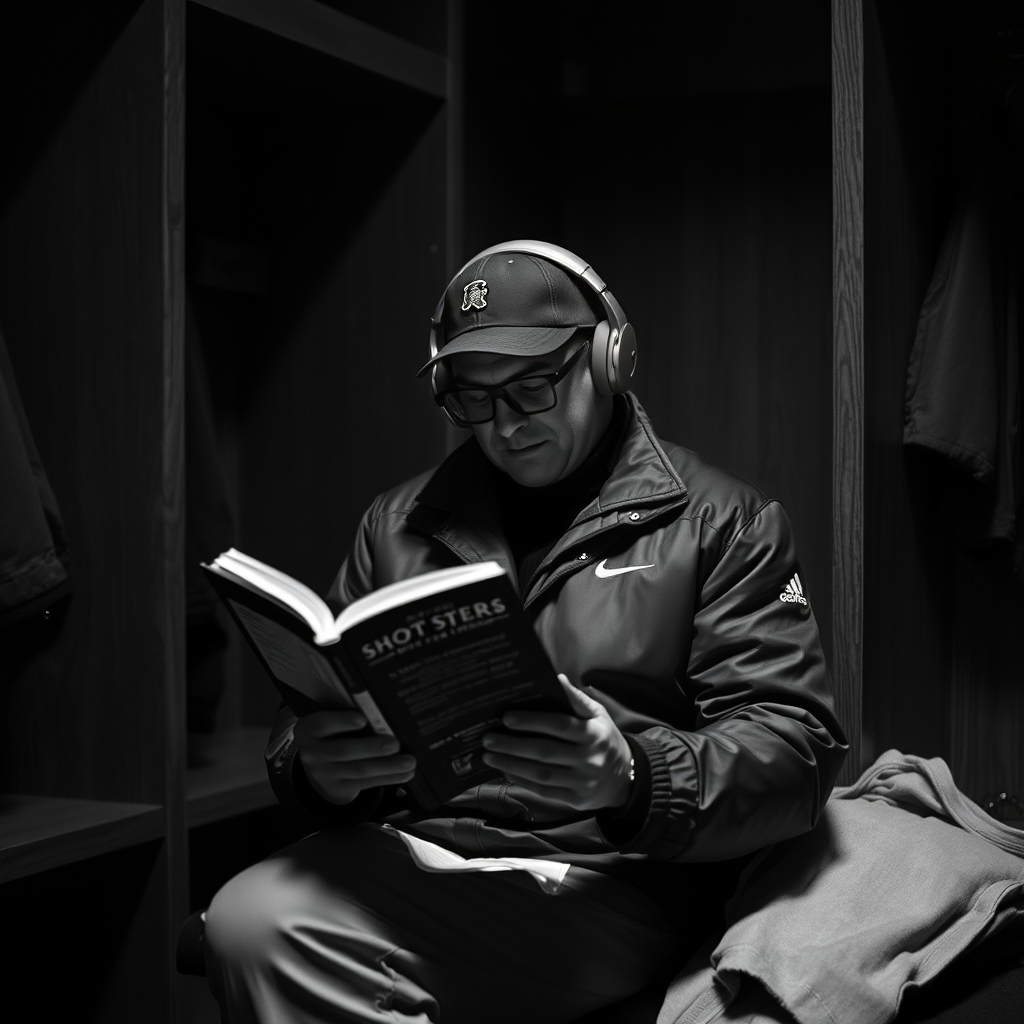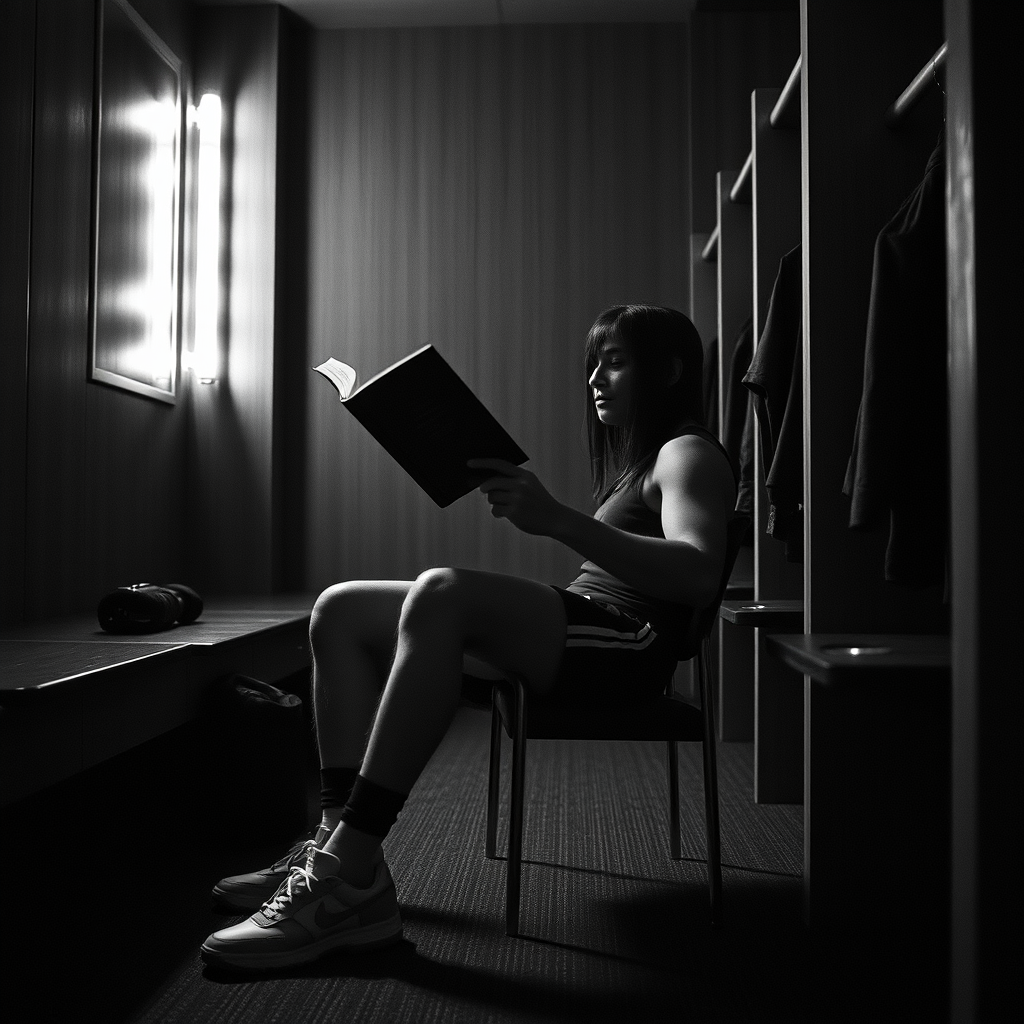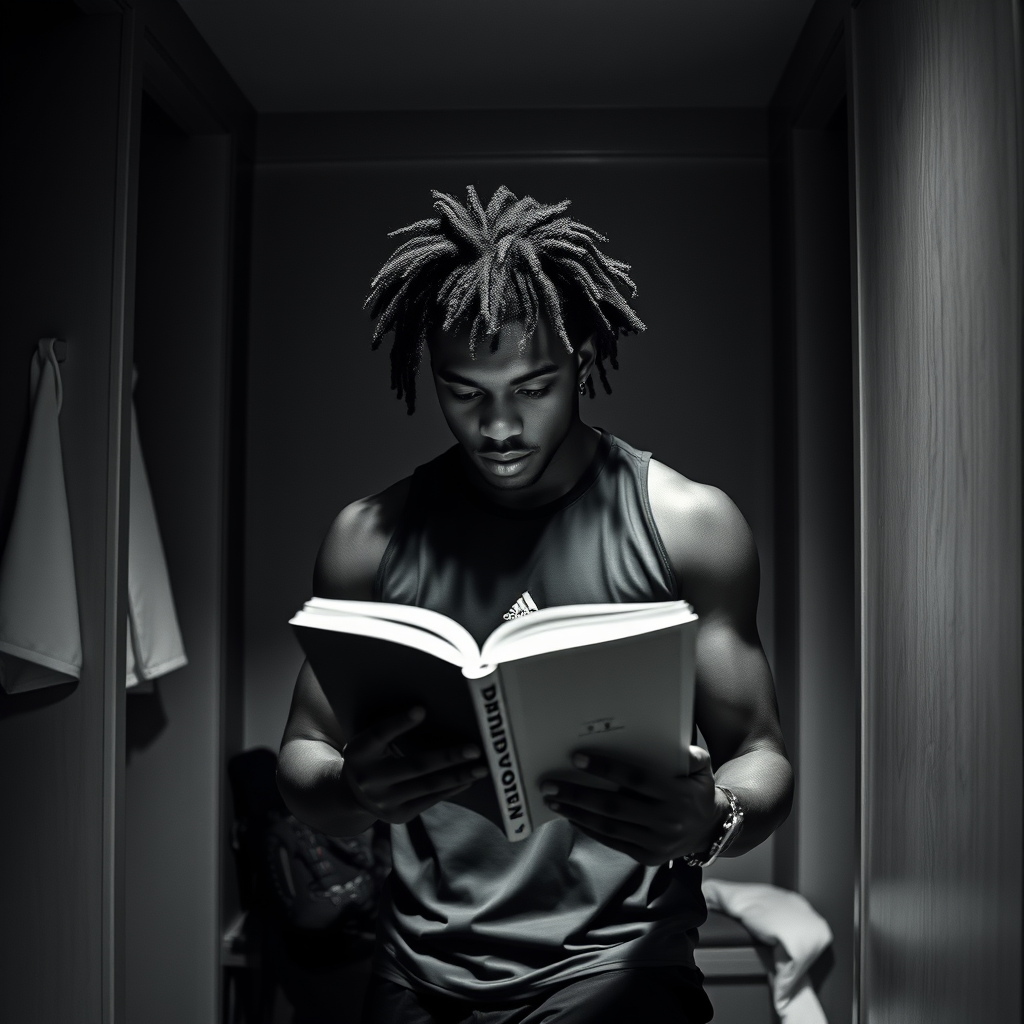How Book Learning And Reading Shapes Powerful Sport
From Theory to Triumph – The Intellectual Backbone of Athletic Excellence
Book Learning – The Hidden Muscle Behind Athletic Mastery
In the age of wearables, AI dashboards, and real-time performance data, it is easy to overlook the quiet force that has long shaped champions. That force is the written word. Book learning – the structured study of sport through theory, history, psychology, and science – remains one of the most powerful tools in an athlete’s and coach’s arsenal. It is not just about reading playbooks or memorizing drills. It is about understanding the reasons behind every movement, decision, and strategy.
Book learning helps decode the biomechanics of a sprint, the psychology of pressure, the sociology of teamwork, and the ethics of competition. From Sun Tzu’s Art of War to contemporary texts on motor learning and tactical periodization, books have always offered athletes and coaches a way to think deeper, train smarter, and lead better. In a world obsessed with performance metrics, book learning provides context, nuance, and critical thinking that raw data cannot deliver.
It cultivates reflective practitioners – athletes who do not just execute but understand. It empowers coaches who do not just instruct but inspire. It supports teams that do not just win but evolve.

Theoretical Frameworks That Shaped Modern Coaching
Book learning in sport draws from a wide range of intellectual traditions. Each framework offers unique insights into how athletes learn, adapt, and perform. Behavioral theories emphasize reinforcement and repetition. Cognitive theories focus on mental processing and decision-making. Humanist approaches prioritize athlete autonomy and emotional wellbeing. Constructivist models encourage experiential learning and reflection.
These frameworks are not isolated. In practice, coaches often blend them to suit context, personality, and performance goals. The table below outlines key theoretical models and how they apply to sport.
Learning Theories
Table – Major Learning Theories in Sport Coaching
| Theory Type | Key Thinkers | Core Principle | Application in Sport |
|---|---|---|---|
| Behaviorist | B.F. Skinner | Learning through reinforcement | Skill drills and habit formation |
| Social Cognitive | Albert Bandura | Learning through observation | Video analysis and role modeling |
| Humanist | Maslow and Carl Rogers | Athlete-centered learning | Motivation and trust-building |
| Constructivist | Piaget and Vygotsky | Learning through experience | Game-based learning and tactical inquiry |
| Experiential | John Dewey and Donald Schön | Reflection and adaptation | Post-match reviews and coaching journals |
Historical Foundations of Book Learning in Sport
The formal study of sport began in the late 19th century with physical education manuals. Early texts focused on anatomy, movement, and moral discipline. In the mid-20th century, coaching literature emerged, blending pedagogy with performance. Behavioral psychology entered sport through the work of B.F. Skinner and Albert Bandura.
Humanist theories from Maslow and Rogers shaped athlete-centered coaching. Biomechanics and kinesiology became academic disciplines. The 1970s introduced sport sociology and critical theory. The 1990s brought cognitive science and motor learning into coaching curricula. Today, sport literature spans physiology, ethics, analytics, and leadership.
Book learning evolved from prescriptive instruction to reflective inquiry. It now supports interdisciplinary thinking and adaptive coaching. The timeline below outlines key intellectual milestones.
Table – Timeline of Book Learning in Sport
| Era | Key Development | Impact on Sport |
|---|---|---|
| 1890s–1920s | Physical education manuals | Structured movement and discipline |
| 1930s–1950s | Anatomy and physiology texts | Scientific understanding of the body |
| 1960s–1970s | Behavioral and humanist psychology | Athlete-centered coaching and motivation |
| 1980s–1990s | Biomechanics and motor learning | Skill acquisition and performance modeling |
| 2000s–2020s | Interdisciplinary sport literature | Reflective practice and tactical evolution |
Fact Point Section – Book Learning in Sport at a Glance
- The first physical education manuals were published in the late 1800s.
- B.F. Skinner’s behaviorist theories influenced early skill training models.
- Carl Rogers’ humanist approach led to athlete-centered coaching frameworks.
- Albert Bandura’s social cognitive theory introduced modeling and observational learning.
- Biomechanics became a formal discipline in sport science in the 1970s.
- Motor learning texts shaped how coaches teach complex skills.
- Sport sociology emerged to study team dynamics and cultural influence.
- Reflective practice was popularized by Donald Schön in coaching literature.
- Tactical periodization was developed through academic and coaching texts.
- Book learning supports ethical decision-making in competitive environments.
- Coaching journals help practitioners integrate theory into daily routines.
- Athlete autobiographies offer insight into psychological resilience.
- Leadership texts influence team culture and communication.
- Reading enhances cognitive flexibility and strategic thinking.
- Book learning remains essential in coach education and certification programs.
Cognitive Development and Tactical Intelligence Through Reading
Book learning enhances cognitive flexibility, which is essential for tactical decision-making in sport. Athletes who engage with theory develop stronger pattern recognition and situational awareness. Reading about game models, formations, and historical strategies builds mental maps that improve reaction time under pressure. Tactical periodization, for example, is a concept born from academic texts and refined through coaching literature. It teaches athletes to adapt intensity and focus across training cycles.
Books on chess, military strategy, and behavioral economics have influenced how coaches design plays and manage risk. Reading also supports metacognition – the ability to think about one’s own thinking. This leads to better self-regulation, emotional control, and in-game adjustments. Tactical intelligence is not just instinctive; it’s cultivated through study. Athletes who read about their sport often outperform those who rely solely on physical repetition. The mind becomes a second muscle – trained, stretched, and sharpened through words.

Leadership, Communication, and Team Culture
Books on leadership and communication have transformed how teams operate. Coaches who study transformational leadership build trust and motivation. Athletes who read about conflict resolution and group dynamics become better teammates. Texts like Legacy by James Kerr (on the All Blacks) and The Captain Class by Sam Walker offer case studies in elite team culture.
Reading helps leaders articulate vision, manage pressure, and foster resilience. It also improves listening and empathy – essential traits in high-stakes environments. Teams that read together often develop shared language and values. Book clubs within squads are becoming common in elite sport. Leadership is no longer just about charisma; it’s about clarity, consistency, and emotional intelligence. These traits are nurtured through structured reading and reflection.
Book Learning and Disability in Sport
Book learning is a gateway to empowerment for athletes with disabilities. It offers access to knowledge that transcends physical barriers, enabling athletes to understand their bodies, refine their strategies, and advocate for their needs. In adaptive sport, reading becomes a tool for autonomy. Athletes study biomechanics to optimize prosthetic movement. They explore psychology to manage pain, pressure, and stigma. They read about nutrition, recovery, and classification systems to navigate complex competitive landscapes.
Coaches working with disabled athletes rely on literature to understand impairment-specific training protocols. Books on neurodiversity, spinal cord injury, and visual impairment provide frameworks for inclusive coaching. Sport science texts help decode how disability intersects with fatigue, coordination, and injury risk. Reading also supports emotional resilience. Memoirs by Paralympians offer insight into identity, grit, and transformation. Athletes learn not just how to perform, but how to lead.
Book learning levels the playing field. It allows athletes with disabilities to engage with sport intellectually, even when physical access is limited. It supports tactical literacy, self-advocacy, and long-term development. In environments where adaptive technology is evolving rapidly, books provide the historical and ethical context needed to guide innovation responsibly.
The future of inclusive sport depends on intellectual equity. When athletes with disabilities are given access to the same depth of theory, reflection, and strategic insight as their peers, performance becomes truly democratic. Book learning is not just a supplement to adaptive sport — it is a cornerstone of its evolution.
Youth Development and Educational Integration
Book learning is especially powerful in youth sport. It supports long-term athlete development by building foundational knowledge. Young athletes who read about anatomy, nutrition, and psychology gain early insight into their bodies and minds. Educational integration – where sport and academics reinforce each other – leads to more balanced development.
Coaches who teach through storytelling and guided reading foster curiosity and retention. Texts on growth mindset and grit help young athletes navigate setbacks. Reading also supports identity formation and ethical reasoning. Youth programs that include book learning produce athletes who are not only skilled but self-aware. The goal is not just performance, but lifelong engagement with sport.
Table – Benefits of Book Learning Across Athlete Development Stages
| Development Stage | Type of Reading Material | Key Benefits |
|---|---|---|
| Youth | Anatomy, nutrition, growth mindset | Body awareness and emotional resilience |
| Adolescent | Psychology, team dynamics, biographies | Identity formation and tactical literacy |
| Collegiate | Sport science, leadership, ethics | Decision-making and communication skills |
| Professional | Tactical theory, recovery, analytics | Strategic depth and performance modeling |
| Post-career | Coaching manuals, memoirs, sociology | Transition planning and mentorship |
Inclusive Intelligence – Book Learning and Disability in Sport
Book learning offers athletes with disabilities a pathway to autonomy and strategic control. Through reading, they gain access to sport-specific knowledge that helps them understand their bodies, refine their techniques, and navigate complex classification systems. This intellectual engagement is especially critical in adaptive sport, where physical limitations may restrict training volume or competition frequency. Literature on biomechanics, neuroplasticity, and prosthetic optimization allows athletes to make informed decisions about their training and recovery. Reading also supports transitions between roles — from athlete to coach, from competitor to analyst — by preserving continuity in learning even when physical participation is interrupted.
This intellectual access spans multiple domains, each supported by distinct types of literature. The table below outlines how book learning contributes to athlete development across key areas:
Key Domains of Book Learning in Adaptive Sport
| Domain | Type of Literature | Impact on Athlete Development |
|---|---|---|
| Biomechanics | Prosthetic optimization, movement analysis | Improved technique and injury prevention |
| Psychology | Resilience, anxiety management | Emotional regulation and confidence |
| Coaching | Inclusive pedagogy, impairment-specific texts | Safer, more effective training environments |
| Tactics | Game models, adaptive strategy | Enhanced decision-making and anticipation |
| Identity & Advocacy | Memoirs, disability studies | Empowerment and narrative reconstruction |
Inclusive Coaching Through Literature
Coaches working with disabled athletes rely on sport literature to build inclusive, impairment-specific training protocols. Academic texts on spinal cord injury, cerebral palsy, limb difference, and visual impairment provide foundational knowledge for designing safe and effective sessions. Literature on neurodiversity and sensory processing helps coaches adapt communication styles and feedback mechanisms. Books on trauma-informed coaching and psychological safety offer strategies for building trust and emotional resilience. Inclusive coaching is not intuitive — it is learned, refined, and contextualized through reading. When coaches engage with disability-focused literature, they become better equipped to support athlete development across physical, cognitive, and emotional domains.
Tactical Literacy and Cognitive Development
Athletes with disabilities benefit from tactical literacy just as much as their able-bodied peers. Reading about game models, adaptive strategies, and historical case studies enhances decision-making and anticipation. For example, wheelchair basketball players who study spatial dynamics and pick-and-roll theory develop sharper court awareness. Blind footballers who read about auditory cue systems and defensive formations improve their reaction time and positioning. Cognitive development through reading supports metacognition — the ability to reflect on one’s own thinking — which is essential for in-game adjustments and long-term growth. Tactical intelligence is not limited by physical ability; it is cultivated through intellectual engagement.
Different learning modalities support this development in complementary ways. The table below compares book learning with experiential and digital approaches in disability sport:
Comparison of Learning Modalities in Disability Sport
| Learning Modality | Strengths | Limitations | Ideal Use Case |
|---|---|---|---|
| Book Learning | Deep theory, reflective insight | Requires literacy and access | Strategic planning and identity formation |
| Experiential Learning | Embodied feedback, real-time adaptation | May be limited by physical constraints | Skill acquisition and sensory integration |
| Digital Learning | Scalable, interactive, accessible | May lack depth or personalization | Monitoring, simulation, and remote coaching |
Psychological Resilience and Identity Formation
Books play a vital role in shaping psychological resilience and identity among athletes with disabilities. Memoirs by Paralympians offer insight into perseverance, transformation, and self-advocacy. Texts on sport psychology help athletes manage anxiety, build confidence, and recover from setbacks. Literature on disability studies and social inclusion fosters a deeper understanding of systemic barriers and personal agency. Reading supports emotional regulation and narrative reconstruction — the process of reframing one’s story in empowering terms. Athletes who engage with reflective texts often report stronger self-awareness, greater motivation, and a clearer sense of purpose. Book learning becomes a mirror and a map — helping athletes see themselves and chart their path forward.
Educational Integration and Long-Term Development
Integrating book learning into adaptive sport programs enhances long-term athlete development. Educational modules that include anatomy, nutrition, ethics, and sport history provide a holistic foundation for growth. Reading supports academic engagement, which is especially important for young athletes navigating dual pathways in sport and education. Inclusive curricula that feature disability-specific content ensure that athletes see themselves reflected in the material. This fosters belonging, motivation, and intellectual pride. Programs that combine physical training with structured reading produce athletes who are not only skilled but informed, articulate, and resilient. Educational integration is not a luxury — it is a necessity for equitable sport development.

Fact Point Section – Book Learning in Sport at a Glance (Part 2)
- Tactical periodization was first formalized in coaching literature in the 1990s.
- The All Blacks rugby team uses structured reading to build team culture.
- Growth mindset theory by Carol Dweck is widely applied in youth sport.
- Sport psychology texts help athletes manage anxiety and focus.
- Leadership books influence captain selection and team dynamics.
- Reading improves verbal fluency and feedback quality in coaching.
- Biographies offer insight into resilience and career transitions.
- Sport sociology texts explore inclusion, identity, and ethics.
- Reflective practice is supported by coaching journals and guided reading.
- Book clubs are used in elite teams to foster shared values.
- Reading supports injury recovery by maintaining cognitive engagement.
- Educational integration improves retention and motivation in youth athletes.
- Tactical reading improves anticipation and decision-making under pressure.
- Coaches who read regularly report higher athlete engagement.
- Book learning is a core component of modern coach certification programs.
Integrating Book Learning with Modern Technology
Book learning is not in competition with technology — it enhances it. In fact, the most effective coaches and athletes are those who can synthesize written theory with digital tools. Reading about biomechanics deepens the use of motion capture analysis. Understanding periodization theory improves how one interprets training load data from wearables. Books on cognitive psychology help athletes make sense of neurofeedback and reaction time metrics.
Digital platforms now host entire libraries of coaching manuals, academic journals, and annotated playbooks. E-books and audiobooks make learning accessible during travel or recovery. Online courses and certification programs often begin with foundational reading lists. Even AI-driven coaching apps are built on principles first articulated in print. The key is not to choose between books and tech, but to use each to illuminate the other. Book learning provides the conceptual scaffolding that makes data meaningful. It teaches athletes and coaches how to ask better questions — and how to interpret the answers.
Table – Book Learning vs. Experiential and Digital Knowledge in Sport
| Knowledge Type | Strengths | Limitations | Ideal Use Case |
|---|---|---|---|
| Book Learning | Deep theory, critical thinking, historical context | May lack immediacy or personalization | Building frameworks and long-term strategy |
| Experiential Learning | Intuitive, embodied, real-time feedback | Can be biased or inconsistent | Skill acquisition and situational awareness |
| Digital Data | Real-time, objective, scalable | Requires interpretation and context | Monitoring performance and recovery |
Conclusion – The Enduring Power of the Page
In a world of instant feedback and algorithmic coaching, book learning remains the slow-burning fuel of mastery. It teaches athletes to think, reflect, and adapt. It gives coaches the language to lead with clarity and purpose. It connects generations of knowledge — from ancient philosophy to modern analytics — in a way that no wearable or app can replicate.
The most successful athletes are not just physically gifted; they are intellectually engaged. They read, they question, they study. They understand that greatness is not just built in the gym or on the field, but also in the quiet hours spent with a book, a journal, or a theory that challenges them to grow. Book learning is not a relic — it is a revolution in slow motion. And in the precision era of sport, it remains one of the most powerful tools we have.
Join the Discussion
In a world of instant feedback and wearable metrics, book learning remains the slow-burning fuel of mastery. But how do we keep the written word relevant in high-performance environments? Should coaches and athletes build reading into their weekly routines? Can tactical literacy and psychological insight from books outperform raw data in the long run?
Whether you’re a coach refining your philosophy, an athlete deepening your mental game, or a sport educator shaping the next generation, your perspective matters. What texts have shaped your approach to sport? How do you balance theory with practice? And what role should reading play in the future of athlete development?
#BookLearningInSport #MindBehindTheMuscle #SportIntelligence #TacticalLiteracy #AthleteEducation #CoachingPhilosophy #SportPsychology #LeadershipInSport #GrowthMindsetAthlete #ReflectivePractice #SportScienceReads #TeamCultureMatters #ReadToPerform #SportSociology #PerformanceTheory







One Comment
Comments are closed.